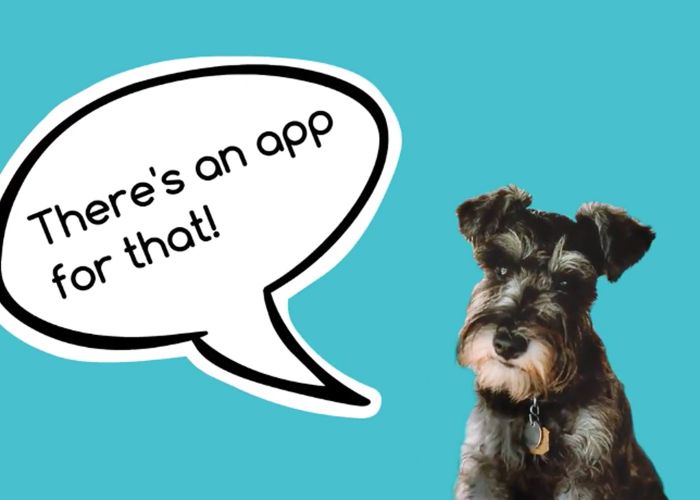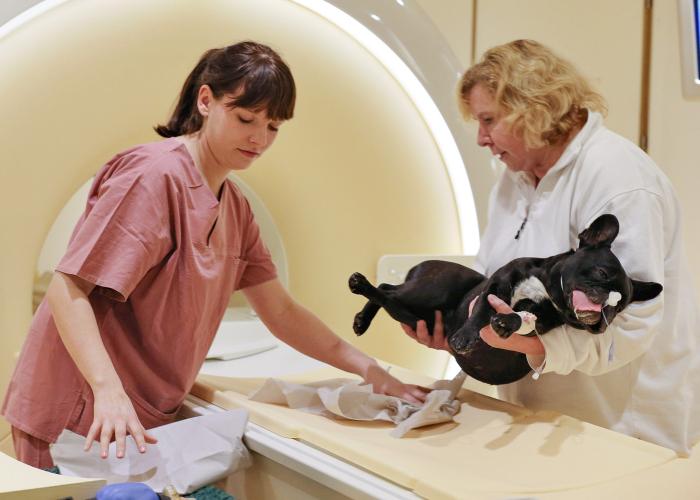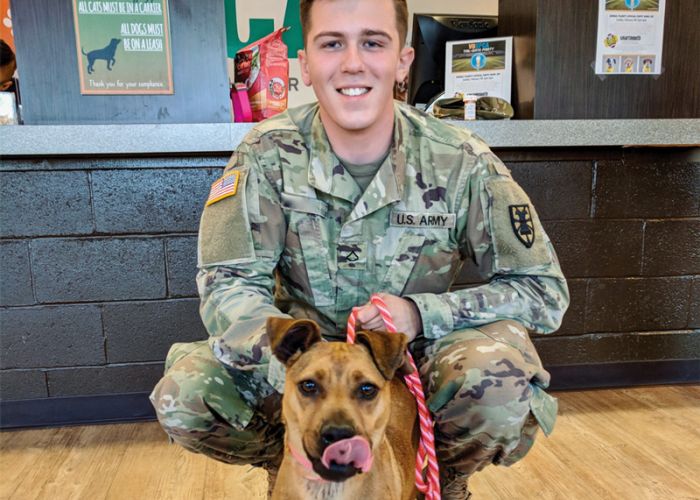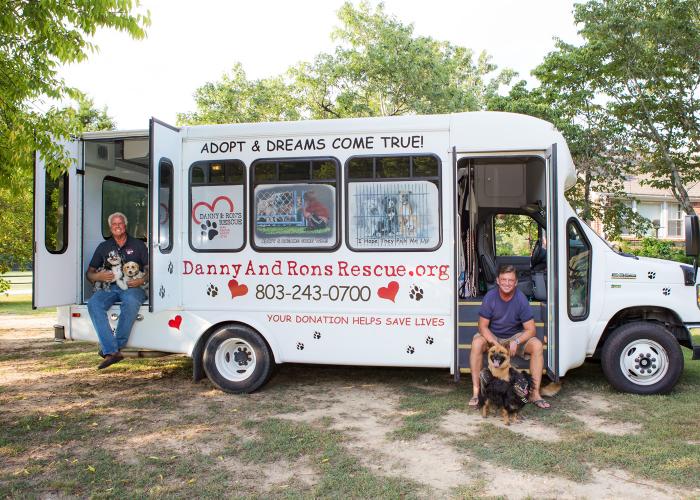How to: Create a regional ripple effect
By helping under-resourced shelters in its region, Nashville Humane Association amplifies its lifesaving impact
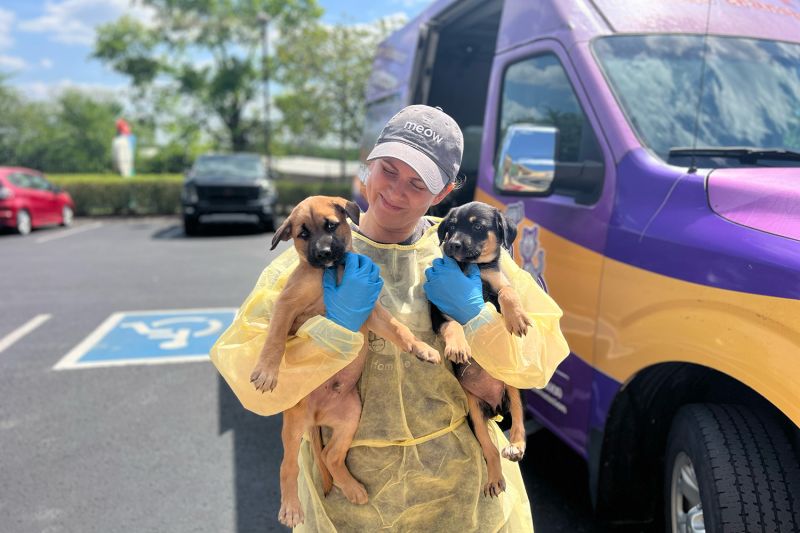
Like all animal shelters, Nashville Humane Association in Tennessee faces its share of challenges. But in a region where many shelters have meager funding and little to no staff, the private nonprofit shelter is in a relatively strong position.
With a $4 million annual budget, around 60 staff members and a managed-admission model, Nashville Humane can’t fix every issue in the region. But it can ease the burden on other shelters and expand its impact through a strong, community-based support network.
Small tools, big impacts
A simple but powerful example: In fall 2024, Nashville Humane installed a public microchip scanning station—one of the first in its state. A refurbished newspaper box painted by a volunteer, the station is installed in a safe, well-lit area near the shelter entrance with clear instructions, a secure chip scanner and a list of next steps.
Combined with Nashville Humane’s low-cost microchip and vaccine clinics, it’s part of a broader strategy to keep pets with their families and reduce shelter intakes. With thousands of lost pets reported in Nashville each year, microchip stations can “stop the whole long process of stray holds” and “get the babies home before dinner,” says Taylor Spreitler, PR and community engagement coordinator.
Nashville Humane has since helped a partner shelter install a microchip station outside its intake door and plans to help other area shelters do the same.
“It helps us. It helps other shelters. It helps keep pets from the stressful shelter environment,” Spreitler says.
Lessons in mentorship
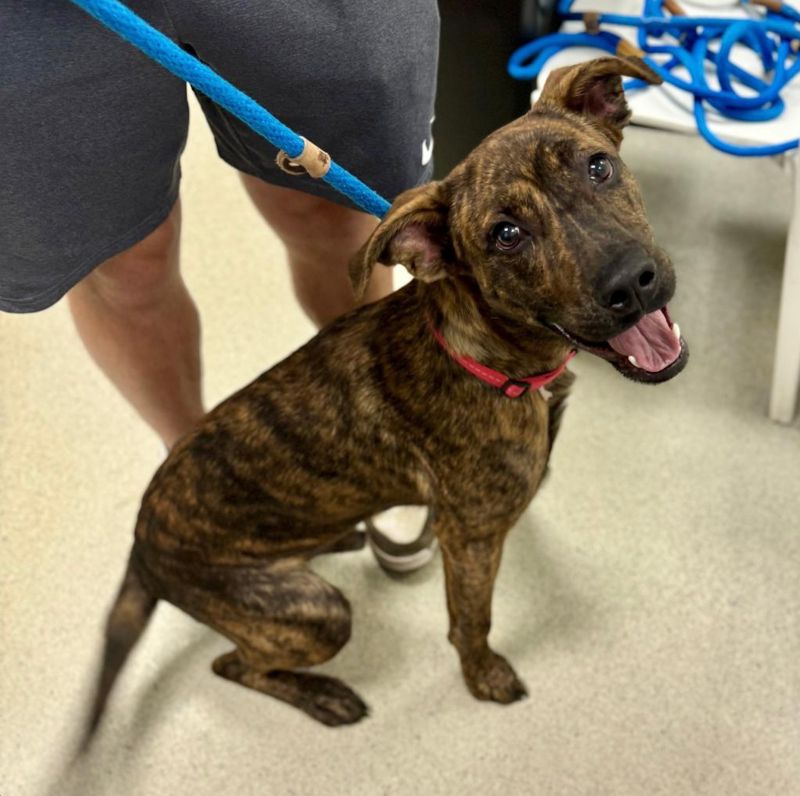
In 2023, Nashville Humane participated in a mentorship program led by Humane World for Animals, which aimed to help relatively well-resourced shelters provide strategic support to smaller organizations in their regions. “We saw an opportunity to strengthen our outreach efforts and provide much-needed support to our rural and under-resourced shelters,” says Spreitler. “The mentorship really helped us pinpoint gaps in local outreach and find our most impactful opportunities.”
During the year-long mentorship, Spreitler and her team received in-depth guidance in shelter operations and capacity building from national experts. Together, they reviewed the shelter’s transport models, intake policies and community partnerships to identify where the organization could leverage its existing strengths to have broader impact.
In the months following, Nashville Humane renewed its approach to regional collaboration, with an emphasis on staff and leadership retention in nearby shelters. Staffers worked with Compassion in Balance to launch a training series, which has since provided professional development, stress management tools and humane education resources to 20 partnering shelters. And in Franklin and Maury counties, where municipal shelters had recently experienced turnover in leadership, the Nashville team stepped in to offer onboarding support for new directors, sharing sample intake protocols, training materials and referral pathways that helped them stabilize operations during transition.
Not all support happens formally. When a volunteer suddenly found herself in charge of a rural shelter after the unexpected departure of the director, Rini Tyler, who manages Nashville Humane’s Pawsitive Impact program, sent over sample standard operating procedures, vaccination guidelines, cleaning protocols and emergency contact lists—everything the new leader needed to keep the doors open and the animals safe.
Sometimes, shelter workers “just need to know they’re not alone,” says Nashville Humane intake manager Kelsey Carlin.
Hyperlocal transport
In the past two years, Nashville Humane has shifted from long-distance transports to a hyperlocal model focused almost entirely in Tennessee. Carlin coordinates with approximately 70 in-state shelter and rescue partners, bringing in 50 to 70 animals each week. Some of the partners are small county shelters with only one part-time officer on staff, or all-volunteer rescues operating out of their homes, Carlin says. “Even taking one or two dogs from them is huge.”
“I used to take in dogs from 15 hours away,” she adds. “But the need is too great here. These are our neighbors. We get people who come to our door with found animals, with strays, with owner surrenders. If we can’t take them at that moment, the vast majority of them are going to end up at [Metro Animal Care and Control]. MACC faces the same struggles as many municipal shelters—being at or over capacity, community criticism and difficult decisions regarding euthanasia. That’s why I go to MACC every week to pull animals—because that’s our community.”
Building on this strong local relationship, Nashville Humane is partnering with MACC on a low-cost spay/neuter program that will start later this year. “We’re really, really excited to be able to offer that,” Tyler says.
Sharing supplies and supporting people
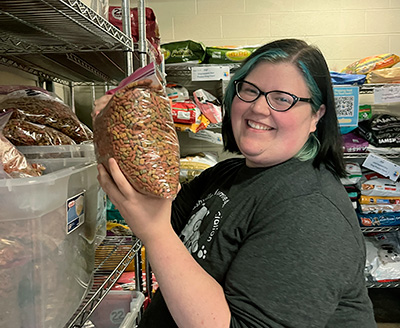
Nashville Humane regularly receives truckloads of food and supplies from Hill’s Pet Nutrition, Greater Good Charities, Tractor Supply and others. When those donations arrive, Tyler activates her email list of 100-plus organizations, including animal shelters, rescues and human service nonprofits.
For particularly large donations, she’s expanded outreach to as many as 900 contacts in Tennessee. “We don’t have the storage space to sit on these donations, and the need is so high, they go fast.”
Tyler points out that the challenges facing shelters mirror the challenges facing communities: housing instability, lack of medical care and economic strain. She runs the shelter’s weekly pet food bank and works with nonprofit People Loving Nashville to share supplies and resources with unhoused people.
“When I supply food to people-focused organizations like homeless services or local low-cost housing, often they’ll pass along my information so that if somebody’s looking to keep their pet, if they need additional resources like food or supplies or education about something, then they would come to me,” she says, and the referrals go both ways.
“It’s all connected. A lot of my job is recommending and being aware of other resources so that when people come to me and they want to keep their pets, I can refer them to the right assistance. Having that local network is really important.”
Real relationships, real outcomes
Carlin notes that Nashville Humane staff regularly visit partner shelters to better understand their circumstances.
“Our jobs are difficult,” Carlin says, “but as a managed-admission shelter, it’s nothing compared to what a lot of municipal shelters deal with. I try to take our staff to rural partners whenever I can, so they can see the difference. If you’ve never seen what these places go through, it’s easy to forget how tough it is. … Some shelters literally can’t clean properly because there’s grass growing in their kennels.”
“I’ve worked at smaller rural shelters in Tennessee,” adds Tyler. “I know how life-changing being on the receiving end [of support and resources] can be. When we’re able to strengthen their programs, it strengthens all of us together.”


